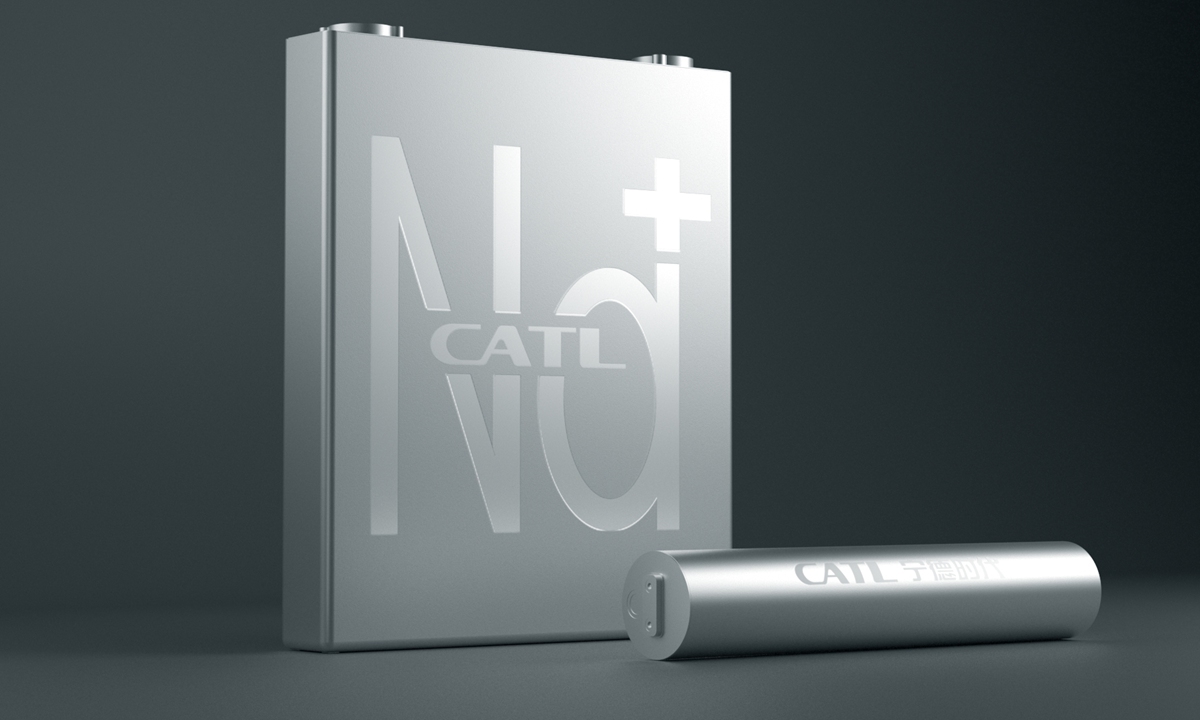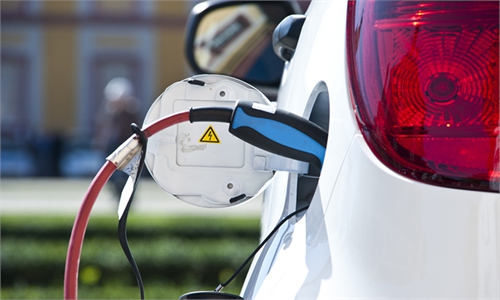
Photo: Courtesy of CATL
Contemporary Amperex Technology Co (CATL), China's battery giant, on Thursday unveiled its latest technology breakthrough -- a first-generation sodium-ion battery that can outperform the widely used lithium battery in fast charging and low-temperature performance.
In a low-temperature environment of -20 C, the sodium-ion battery has a capacity retention rate of more than 90 percent. And, the battery can be charged to 80 percent of capacity within 15 minutes at room temperature, according to documents sent to the Global Times on Thursday by CATL.
Zhang Xiang, an auto industry analyst, told the Global Times on Thursday that such a speed is almost as little time as it takes to fill up the tank of a gasoline-powered car.
The energy density of CATL's sodium-ion battery cell can reach up to 160 watt-hours per kilogram, which is currently the highest level in the world, said Huang Qisen, deputy dean of the CATL Research Institute.
CATL Chairman Robin Zeng Yuqun revealed on Thursday that the next generation of sodium-ion batteries' energy density development target is to exceed 200 watt-hours per kilogram.
CATL plans to form a basic industry chain by 2023.
But Zhang said that sodium-ion batteries are still in the laboratory stage, and many uncertainties remain. For instance, the current energy density of the battery does not meet the standards for China's NEV subsidy policy.
What's more, sodium-ion batteries only have a maximum of 1,500 cycles, which is less than the 6,000 cycles offered by lithium iron phosphate technology or the 3,000 cycles of ternary lithium batteries, Zhang said.
"Sodium-ion batteries have a much shorter life span. Meanwhile, the energy density of sodium ions is 20-50 percent lower than that of lithium because sodium is less volatile than lithium, which at the same time means that sodium is safer than lithium," Zhang added.
Sodium is the sixth most common element on Earth with abundant resources, which means that the cost of sodium-ion batteries will be lower that of lithium-ion batteries.
Analysts said that while China has abundant lithium resources, they are of poor quality. At present, 80 percent of the power battery lithium is imported, and this can easily be restricted by foreign countries, while sodium does not have that problem.
"Overall, despite having slightly lower energy density than the current lithium batteries, our first-generation sodium-ion batteries have outstanding advantages in low temperature performance and charging speed, especially in high power application and alpine region application scenarios," Huang said.
Sodium-ion batteries are compatible and complementary with lithium-ion batteries. Diversified technical routes are also an important guarantee for the long-term development of the industry, Zeng added.

